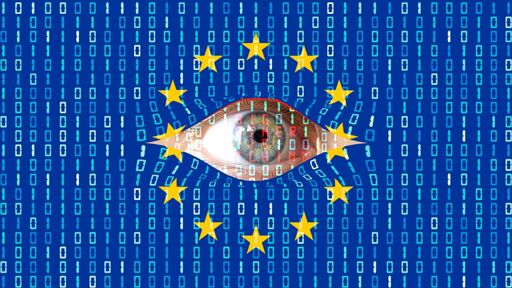YouTube relaxes moderation rules to allow more controversial content. Videos are allowed if "freedom of expression value may outweigh harm risk"
-
This post did not contain any content.

YouTube relaxes moderation rules to allow more controversial content
The Google-owned site has provided moderators with new guidelines and training on how to deal with inflammatory content that breaks YouTube's code of conduct, writes The New...

TechSpot (www.techspot.com)
-
This post did not contain any content.

YouTube relaxes moderation rules to allow more controversial content
The Google-owned site has provided moderators with new guidelines and training on how to deal with inflammatory content that breaks YouTube's code of conduct, writes The New...

TechSpot (www.techspot.com)
If only half of that leniency were granted to selfhosting tools and adblockers
-
This post did not contain any content.

YouTube relaxes moderation rules to allow more controversial content
The Google-owned site has provided moderators with new guidelines and training on how to deal with inflammatory content that breaks YouTube's code of conduct, writes The New...

TechSpot (www.techspot.com)
This is just going to be used to allow fascist propaganda, isn't it?
-
This post did not contain any content.

YouTube relaxes moderation rules to allow more controversial content
The Google-owned site has provided moderators with new guidelines and training on how to deal with inflammatory content that breaks YouTube's code of conduct, writes The New...

TechSpot (www.techspot.com)
They opened their doors to the goose stepping. Fucking corporate shitheads.
-
This is just going to be used to allow fascist propaganda, isn't it?
yes, surprising a total of 0 people.
-
This post did not contain any content.

YouTube relaxes moderation rules to allow more controversial content
The Google-owned site has provided moderators with new guidelines and training on how to deal with inflammatory content that breaks YouTube's code of conduct, writes The New...

TechSpot (www.techspot.com)
This is such bad news. I'm sympathetic to content creators who have to step on eggshells to please the algorithm/advertisers... But this?
Yeah, this is not that. We all know who this is for.
-
This post did not contain any content.

YouTube relaxes moderation rules to allow more controversial content
The Google-owned site has provided moderators with new guidelines and training on how to deal with inflammatory content that breaks YouTube's code of conduct, writes The New...

TechSpot (www.techspot.com)
They really are killin' everything, aren't they...
-
This is just going to be used to allow fascist propaganda, isn't it?
I assume you mean fascist propaganda over and above the right wing rabbit holes that already exist on YouTube….
Ugh, this is terrible.
-
This is just going to be used to allow fascist propaganda, isn't it?
Well yes. You obviously still can’t say “le dollar bean” without getting nuked from orbit. YouTube is a goodly Christian corporation after all, can’t have such content.
-
This post did not contain any content.

YouTube relaxes moderation rules to allow more controversial content
The Google-owned site has provided moderators with new guidelines and training on how to deal with inflammatory content that breaks YouTube's code of conduct, writes The New...

TechSpot (www.techspot.com)
Videos are allowed if "freedom of expression value may outweigh harm risk"
oh it's that easy huh. why didn't we think of this before lol.
-
This post did not contain any content.

YouTube relaxes moderation rules to allow more controversial content
The Google-owned site has provided moderators with new guidelines and training on how to deal with inflammatory content that breaks YouTube's code of conduct, writes The New...

TechSpot (www.techspot.com)
Do people still have to say unalive?
Censorship is goddamn stupid.
They should just tag content & let people decide what to filter. -
This post did not contain any content.

YouTube relaxes moderation rules to allow more controversial content
The Google-owned site has provided moderators with new guidelines and training on how to deal with inflammatory content that breaks YouTube's code of conduct, writes The New...

TechSpot (www.techspot.com)
I'm gessing that's not gonna positively impact the people i watch and instead go towards some dumb shits.
-
This is just going to be used to allow fascist propaganda, isn't it?
And still block curse words and specific terms. Fuck this place
-
This post did not contain any content.

YouTube relaxes moderation rules to allow more controversial content
The Google-owned site has provided moderators with new guidelines and training on how to deal with inflammatory content that breaks YouTube's code of conduct, writes The New...

TechSpot (www.techspot.com)
"Muh
freedumsprofit" outweighs life. The silent bit spoken aloud. Cool cool.As expected from this timeline and this garbage conglomerate.
-
Do people still have to say unalive?
Censorship is goddamn stupid.
They should just tag content & let people decide what to filter.I'm going to start using "inhumed".
-
This post did not contain any content.

YouTube relaxes moderation rules to allow more controversial content
The Google-owned site has provided moderators with new guidelines and training on how to deal with inflammatory content that breaks YouTube's code of conduct, writes The New...

TechSpot (www.techspot.com)
Good. I don't really care about youtube, but less censorship is always a good thing.
How can you people say you respect science when you support silencing any criticism of it? That's not science. That's religion.
That said, this criteria clearly only exists to protect "influencers" who make youtube a proportional amount of money. If you have a channel with very little traffic and you say something controversial, you'd better believe your "freedom of expression value" will not be high enough to outweigh the corporation's perceived "harm risk."
-
And still block curse words and specific terms. Fuck this place
Fuck this place
Are you implying you don't use YT at all? Or you use it and choose to be unhappy with it?
Just curious, I often get mad because they need to censor words, but not to the degrees to say 'fuck this place" and move to the other (unborn) alternative.
-
This post did not contain any content.

YouTube relaxes moderation rules to allow more controversial content
The Google-owned site has provided moderators with new guidelines and training on how to deal with inflammatory content that breaks YouTube's code of conduct, writes The New...

TechSpot (www.techspot.com)
Can we talk about adblockers, or is that still somehow worse than nazi shit?
Btw they removed a popular Youtuber's "Degoogle Your Life" series lmfao (Linus Tech Tips). But a far-right thinnly-veiled racist video? All a'okay according to Google.
-
Fuck this place
Are you implying you don't use YT at all? Or you use it and choose to be unhappy with it?
Just curious, I often get mad because they need to censor words, but not to the degrees to say 'fuck this place" and move to the other (unborn) alternative.
Personally I don't use YouTube the website at all at this point. I'm 100℅ Freetube and yt-dlp/Plex for watching the channels I like.
-
Fuck this place
Are you implying you don't use YT at all? Or you use it and choose to be unhappy with it?
Just curious, I often get mad because they need to censor words, but not to the degrees to say 'fuck this place" and move to the other (unborn) alternative.
The alternatives are there. They don't have the volume of course, but they're very much born...
-
-
-
-
-
Google is launching Offerwall, A new tool for publishers/websites to paywall their content.
Technology 1
1
-
"Weakening encryption undermines ProtectEU's objectives" – experts slams EU plan to create an encryption backdoor, again
Technology 1
1
-
EU ruling: tracking-based advertising by Google, Microsoft, Amazon, X, across Europe has no legal basis
Technology 1
1
-

